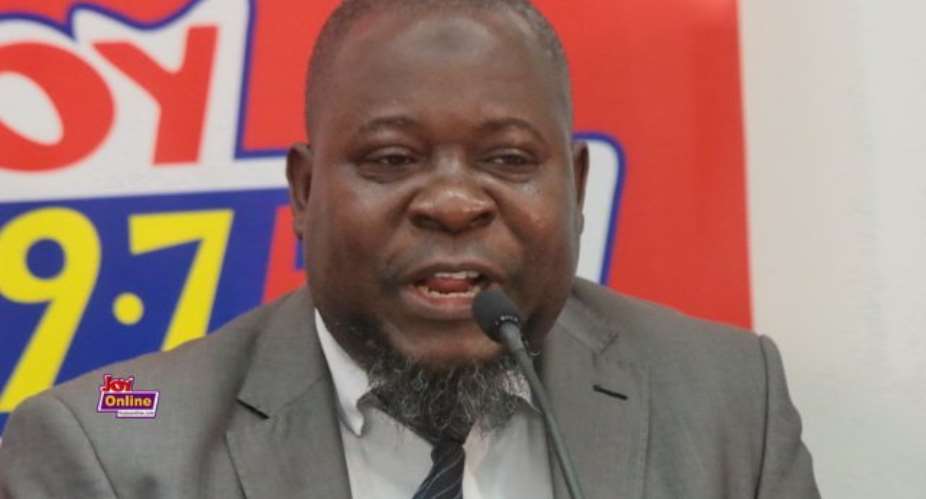A former economic advisor to government has described reactions to Ghana's depreciating currency as unnecessary.
Dr Said Boakye who was an economic advisor under the John Atta Mills-led National Democratic Congress (NDC) administration argued that the cedi's depreciation is not as bad as it has been made to look.
From ¢4.42 to the dollar in January 2018, the cedi in August 2018 is valued at ¢4.78 to the dollar at the interbank rates but is trading at ¢4.94 at some forex bureaux in Accra.
It is selling for ¢5 on the black market.
The decline has resulted in a drop of 6.9 per cent this year, more than the cumulative depreciation of 4.7 per cent for the whole of 2017.
Social media has been buzzing with the decline of the cedi and the Vice-President Dr Mahamudu Bawumia who is head of the government's economic management team is under pressure to explain the decline to Ghanaians.
Videos of his famous statement "when you do propaganda with the cedi, the exchange rate will expose you," the vocal critic lampooned the previous government.
Discussing the cedi's latest round of depreciation at the Cedi Forum organised by Joy FM, Dr Said Boakye is unmoved by the news of the decline.
The Senior Research Fellow reported that after studying the cedi in the first eight months of each year from 1993 to 2018, he noticed that the cedi has depreciated by an average of 11%.
But cedi has only depreciated by 6.5% in the first eight months in 2018, he said.
"I don't think the hue and cry this year is necessary...the cedi is not that weak now," he said at the forum held at the Economics Department of the University of Ghana.
Dr. Said Boakye who was an economic advisor to Finance minister Dr Kwabena Duffuor during the Mills government between 2009 to 2012, however, conceded the cedi could do better.
Picking good years for the cedi from 1993 to 2018, he said the rate of depreciation in the first 8 months of 1998, 2001, 2004, 2005 was "much, much lower" than the 6.5%.
In 2005, the depreciation rate was 0.4% in the first 8 months and -0.1% in 2010.
Explaining the cause of the depreciation, the Senior Research Fellow at Institute for Fiscal Studies (IFS) said it was down to IMF conditionalities.
He observed that whenever Ghana's gross international reserves are good, the cedi does not depreciate.
At $7.3bn as at June 2018 which is four months of import cover, the cedi should be doing well against the dollar but that is not the case, he said.
This is because the IMF which entered into a three-year economic management program with Ghana has been setting the exchange rate.
In 2016, the IMF agreement set the rate at ¢4 to a dollar which rose to ¢4.4 in 2017 and is ¢4.7 in 2018 as displayed in forex bureaux.
"There is something hidden somewhere," he said.
The IFS Senior Research Fellow called for "a lot of soul searching" among Ghanaians to arrive at practical measures to strengthen the cedi.





 Tuesday’s downpour destroys ceiling of Circuit Court '8' in Accra
Tuesday’s downpour destroys ceiling of Circuit Court '8' in Accra
 SOEs shouldn't compromise on ethical standards, accountability – Akufo-Addo
SOEs shouldn't compromise on ethical standards, accountability – Akufo-Addo
 Father of 2-year-old boy attacked by dog appeals for financial support
Father of 2-year-old boy attacked by dog appeals for financial support
 Jubilee House National Security Operative allegedly swindles businessman over sa...
Jubilee House National Security Operative allegedly swindles businessman over sa...
 Nobody can order dumsor timetable except Energy Minister – Osafo-Maafo
Nobody can order dumsor timetable except Energy Minister – Osafo-Maafo
 Mahama wishes National Chief Imam as he clock 105 years today
Mahama wishes National Chief Imam as he clock 105 years today
 J.B.Danquah Adu’s murder trial: Case adjourned to April 29
J.B.Danquah Adu’s murder trial: Case adjourned to April 29
 High Court issues arrest warrant for former MASLOC Boss
High Court issues arrest warrant for former MASLOC Boss
 Align academic curriculum with industry needs — Stanbic Bank Ghana CEO advocates
Align academic curriculum with industry needs — Stanbic Bank Ghana CEO advocates
 Election 2024: We'll declare the results and let Ghanaians know we've won - Manh...
Election 2024: We'll declare the results and let Ghanaians know we've won - Manh...
